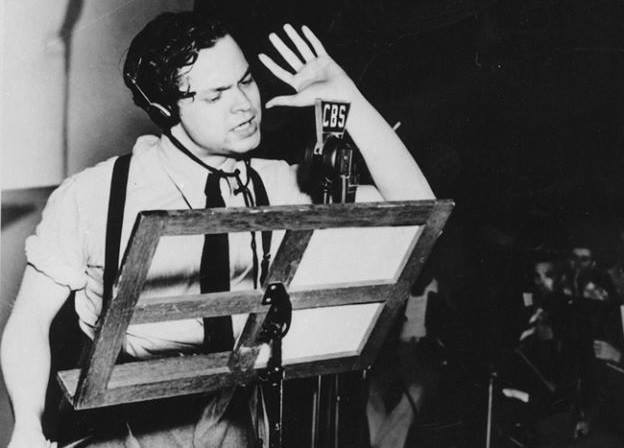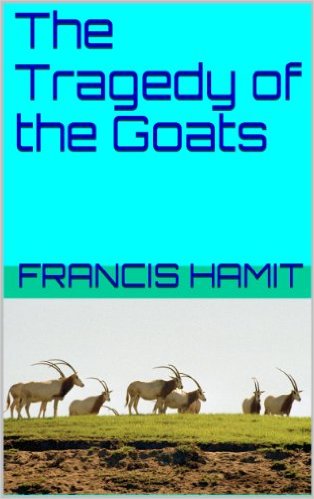(1) A GAME THAT WILL MAKE YOU TINGLE. Jamoche brings to everyone’s attention Zoe Quinn’s crowdfunding appeal, Kickstarted in the Butt: A Chuck Tingle Digital Adventure:
Zoe Quinn is making a game inspired by Chuck Tingle: Project Tingler [True Name Concealed Until Release to Protect From Dark Magics] is a brilliant blend of classic adventure games, dating sims, and the world of Amazon Kindle Sensation and Hugo Award Nominee Dr. Chuck Tingle (Space Raptor Butt Invasion; Slammed in the Butthole by My Concept of Linear Time; Pounded in the Butt by My Hugo Award Loss) from game developer Zoë Quinn (Depression Quest; Framed; Betrayal at House on the Hill: Widow’s Walk), to be released on computrons of the PC/Mac variety in early 2017.
In case you wondered, they say the game’s visuals will be restrained —
GET TINGLED BY OUR CUSTOM SMUT! The very nature of the Tingleverse is The Rawest of Graphic Sensualities, but players who aren’t down with visual depictions of sexual content needn’t fear. While we’re working with video and real actors (the cast will most certainly SURPRISE and AMAZE you), there won’t be explicit footage of people taking a trip to bonetown. Our salacious scenes are literary in nature and read aloud by talented performers, intended to pound the most sexual of your organs…Your imagination.
To date she has raised $36,958 of the $69,420 goal, with 16 days to go.
(2) FRENCH WORLCON BID. Here’s a video of the Worldcon in France presentation at Utopiales yesterday. Hint: It’s not in English.
(3) FILLION. At Digital Trends, “Nathan Fillion on ‘Firefly,’ mastering selfies, and living the Con life”.
How big a fan boy were you growing up?
There were things that I really enjoyed. I lived half an hour from school. I got out at 3:30 and my favorite show, Gilligan’s Island, started at 4:00. Because in the winter time that little tropical island was the only reprieve I had from the snow. But you had to haul ass to make that trip in a half an hour. You had to move. You couldn’t walk or you’d miss half the show. So it was a half hour run to get home to see Gilligan’s Island at 4:00. That was a big deal to me. We didn’t have access back then the way people have access now. People can get online and see when someone’s going to be in their city. The convention circuit is huge now. But it wasn’t a big deal back then. People weren’t connected the way they are now. And on top of all that you can just get online and say, “Hey, what’s Bob Denver thinking about today?” If Bob Denver had a Twitter, I’d know what he was doing.
(4) SFWA AND INDIE. Cat Rambo’s hometown paper published an interview with a great photo of her: “Science fiction author Cat Rambo helps expand genre”.
With changes in who writers are and where they’re from, there’s also changes in how people are reading science fiction. Traditional publishers are nervous when it comes to e-books, but that is where quite a bit of the market is going, Rambo says. A year and a half ago, SFWA voted to allow in independent publishers that meet certain criteria. The organization can help increase awareness for lesser-known authors.
“I think self-publishing will become more and more accessible,” she says. “The biggest issue those authors have is discoverability. Once you have more gatekeepers saying what’s good, it gets easier.”
She reads an extremely high number of books each month — somewhere between 50 and 100 — and about 80 percent of those are e-books. That doesn’t mean print books don’t have a future, though. Print books can continue to push the boundary of the definition of a book, Rambo says. The can blend books and games, for instance, or expand what a book looks like through changing fonts, how words appear or what’s included in a text.
(5) HALLOWEEN READING. Cat Rambo has posted a free story suitable for the holiday, “The Silent Familiar”.
The Wizard Niccolo was not happy. At the age of 183 — youthful for a wizard, but improbable for an ordinary human — he had thought certain things well out of his life. Sudden changes in his daily routine were one. And romance was another – even if it was his familiar’s romance, and not his own.
(6) FERTILITY. And, says Cat, put in a link to Will Kaufman’s “October’s Son” in Lightspeed Magazine, perfectly timed for Halloween and also free to read.
No excerpt, which would give away the story, so let me quote from Arley Sorg’s interview with Kaufman in the same issue:
This piece is full of surprises and frank, unsettling images, which is part of what makes it so effective. To me, it never goes too far or becomes gratuitous. What, for you, are the benefits and the hazards, or perhaps the challenges, of surprise and shock?
In a short story, visceral imagery can be a great tool. Short stories don’t give the writer a lot of time to work a wedge into the reader’s brain so you can split it open and fiddle around inside. A solid visceral image is a very fast, effective way to do that. Reading is often portrayed as an intellectual activity, but it can also be very bodily. Nothing reminds people of that, or grounds them in their bodies and short-wires the defenses that separate mind from body, quite like a little body horror.
(7) BEFORE THEY WROTE FOR TZ: MeTV says there are “8 books any fan of The Twilight Zone should read”, such as —
Richard Matheson – ‘Nightmare At 20,000 Feet: Horror Stories By Richard Matheson’
In his introduction, Stephen King describes Matheson’s influence on the horror genre in the 1950s as “a bolt of pure ozone lightning.” The master also confesses that without Matheson, he “wouldn’t be around.” This modern collection largely draws from the 1950s, with some 1960s shorts thrown in as well, keeping it contemporary with Twilight Zone. Matheson was the mind behind other classic episodes like “Third from the Sun,” “Nick of Time,” “The Invaders,” “Night Call” and more.
(8) CREATING THE CREATOR. What happened to Rod Serling before TZ also has a lot to do with why he created the series: “The psychological trauma that Rod Serling suffered after WW2 inspired him to creat ‘The Twilight Zone’”.
In his senior year of high school, he was interested in joining the military, enlisting after graduation. He served as a U.S. army paratrooper and demolition specialist with the 511th Parachute Infantry Regiment of the 11th Airborne Division.
His military service was a turning point in his life and influenced much of his writing, experiencing combat for the first time in November 1944 on the Philippine island of Leyte. When he was discharged in 1946, Serling had earned the Purple Heart, Bronze Star, and Philippine Liberation Medal.
Nightmares and flashbacks of his wartime experiences haunted Serling constantly once he returned. One particular event while serving in World War II would dramatically change his life and writings….
(9) TODAY IN HISTORY
- October 30, 1938 — Orson Welles triggered a national panic with a realistic radio dramatization of a Martian invasion, based on H.G. Wells’ “War of the Worlds.” The wire service news story about the event began —
NEW YORK, Oct. 30, 1938 (UP) — Residents of New Jersey fled their homes tonight, squad cars and ambulances roared through Newark and newspaper and press association offices throughout the country were besieged with telephone calls demanding to know about “a meteor which fell in New Jersey.”
The uproar resulted from a radio dramatization of H.G. Wells’ novel, “The War of the Worlds,” in which the arrival of men from Mars upon earth at first is believed to be a meteor shower.
(10) NOVELLA DISCUSSION ON REDDIT. Reddit user jddennis has created a subreddit for people to discuss SFF novellas: https://www.reddit.com/r/Spec_Fic_Novella_Club/
The first two being discussed are:
The Warren by Brian Evenson <https://www.reddit.com/r/Spec_Fic_Novella_Club/comments/5a1ciw/discussion_the_warren_by_brian_evenson/> and
Folding Beijing by Jingfang Hao <https://www.reddit.com/r/Spec_Fic_Novella_Club/comments/5a1c5b/discussion_folding_beijing_by_jingfang_hao/>.
(11) ROCKS. Brad R. Torgersen has an excellent column on the importance of persistence to a writer — “It takes a lot of rocks to get to the candy” — at Mad Genius Club.
My wife and I coordinated our Halloween costumes this year, to correspond with It’s the Great Pumpkin, Charlie Brown! She’s Lucy, complete with red witch hat and green witch mask; both custom-made — my wife is just talented as hell like that. My outfit, on the other hand, is far simpler: Charlie Brown — to include the white sheet with way too many eye holes. A family friend commented to me (tonight, at the local ward party) that all I needed to complete my portion, was a football, and a paper sack filled with rocks.
I’ve use the sack-full-of-rocks analogy before, to describe what it’s like being an aspiring author….
Yeah, I get it. No sane person gets a sack full of rocks every single year, and doesn’t experience moments of severe doubt. I was getting ready to throw in the towel by 2005 — after over a dozen years of rejection — when my wife said to me, “If you let this dream go, you have to replace it with an equal or better dream.” I ultimately couldn’t do that, because I couldn’t turn off the story-generator in my head. Even if my storytelling chops weren’t yet good enough to take what was happening in my head, and smoothly translate it to words. So I redoubled my effort. And I switched up my style. Moving from third-person to first-person — especially for short stories — was a huge win for me. Uncomfortable as hell, at first. But it was the necessary move that helped me bump my short work into entry-level professional territory. So that by 2010 I had stuff under contract, with more on the way, and a bona fide career was launched.
And because I still had all those sacks filled with rocks, I could look at them and relish the (then, new) candy suddenly being thrown my way….
(12) AWARD FANAC. Jugger Grimrod continues “The Hugo Conversation (Hugo Awards 2016)” at silence is a weapon.
Once I started thinking about Fandom in these terms, it occurred to me that voting on awards is just as much a Fan activity as any of those others. Voting, in this case, doesn’t just mean checking boxes and clicking submit on a form, it means the whole process: researching potential candidates, nominating, reviewing and ranking nominees, presenting the awards, celebrating the winners, and examining all of the voting statistics afterwards. Different voters may emphasize different parts of the process, but they all put time and effort into it, just like Fans of other activities.
So when we talk about a Fan-voted award, we aren’t talking about a random sampling of Fans from across Fandom. We aren’t talking about a group that was selected on some basis, they aren’t necessarily more knowledgeable than anyone else and they don’t have an agenda to push. The core Voter Fan group is unified only by the fact that they enjoy participating in awards. They don’t make up the whole voter population, there will also be occasional participants who are either trying it to see if they enjoy it, or they joined the group for some other reason and they’re voting just because they can, or because they do have a particular story, author or agenda to push (obviously this has been an issue recently). So Voter Fandom doesn’t automatically control the outcome of any particular vote, but they’re usually going to be an influential voice in the proceedings.
This explains why a relatively small group of Fans determines the outcome of some major awards. It’s just not an activity that attracts a big crowd….
(13) THESE ARE THE JOKES, FOLKS. The New York Post reveals “Mel Brooks’ hilarious secrets behind the making of ‘Young Frankenstein’”.
Mel’s mother was funnier than he is.
Mel was 5 years old in 1931 when he saw Boris Karloff in “Frankenstein.” He was so terrified he asked his mother, Kate, if he could sleep with the window by the fire escape closed in their Brooklyn apartment. It was 90 degrees outside, but Mel thought the monster would come through the window and eat him.
His mother thought for a moment and said, “The monster lives in Romania . . . Romania is not near the ocean. He’s going to have to go a long way to get to a boat. Then he has to have money to pay for his passage. He may not have any money if he is just a monster. He may not have pockets. Let’s say he gets a boat to America. The boat may go to Miami. But if it goes to New York and he gets off, he doesn’t know the subway system. Let’s say he gets to Brooklyn. He doesn’t know our street. Let’s say he does find our street. The people on the first floor have their window open. If he’s hungry, he is going to eat who’s ever on the first floor.”
(14) PEN PAL. Camestros Felapton becomes a story doctor in “Tmothy and the publishing delay”.
“Never mind all that – I need you to think of an ending for my book.” grumbled the cat, who now sat on his haunches in front of the specially cat-adapted keyboard.
“Your book?” I asked. Timothy’s book? I had announced Timothy’s book some weeks ago and it was originally going to be a domestic drama called the “Confusing Walrus” based on unsubtle plagiarism of a John Scalzi space-opera, which had led to some excitement among Timothy’s inexplicable following. The capricious cat had then forced me to retract that announcement because the supposedly “finished” book was now going to be a cook-book called the “Collapsing Souffle”.
[Thanks to JJ, Gregory N. Hullender, John King Tarpinian, Cat Rambo, and Jamoche for some of these stories. Title credit goes to File 770 contributing editor of the day RedWombat.]




